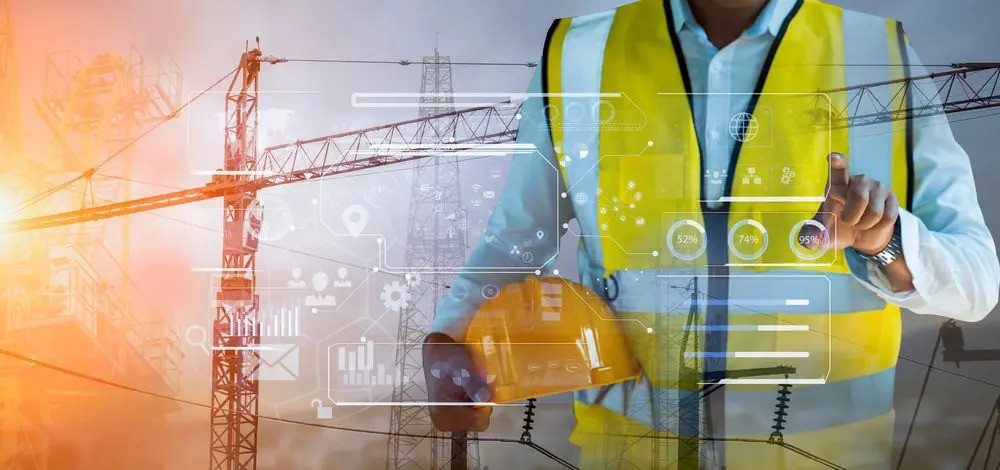Introduction
The technological revolution has ushered in a new era across various sectors, and Artificial Intelligence (AI) stands at the forefront of this transformation. From healthcare to finance, the integration of AI has disrupted traditional practices, paving the way for unprecedented efficiency and innovation.
In the construction industry, plagued by complexities and a constant quest for efficiency, adopting AI in Construction promises to tackle age-old challenges. Construction projects are notorious for delays, budget overruns, and safety concerns, making the potential advantages of AI in Construction a topic of paramount importance.
Understanding AI in Construction
AI and its subset technologies encompass machine learning, computer vision, and robotics, all of which play a pivotal role in modernizing the construction sector. The industry is witnessing a shift where decision-making is not solely based on experience or intuition but is significantly enhanced by data-driven AI insights. AI Technology in Construction, with its predictive algorithms and automation capabilities, is set to redefine the very foundation of construction work.
In the field, on the drafting table, or within project management offices, AI is revolutionizing the workspace. Construction Technology, once confined to heavy machinery and basic computer applications, now extends to sophisticated AI-driven tools that streamline operations and foster collaboration.
5 Ways AI is Easing Construction Work
Automating Tasks
Repetitive tasks such as bricklaying, welding, and even certain elements of planning can now be entrusted to AI and automated systems, leading to increased precision and time savings. Technological advancements in Automated Construction, like drones for site surveying or robots for prefabricating components, not only speed up the process but also reduce human error.
Streamlining Project Management
Project management stands to gain immensely from AI, with systems capable of analyzing countless data points to predict outcomes and suggest the most efficient paths forward. Construction Project Management, aided by AI, can now anticipate delays, forecast budgetary constraints, and ensure resource availability proactively, thus ensuring projects are completed on time and within budget.
Enhancing Safety Measures
AI is a game-changer in enforcing rigorous safety standards. By continuously analyzing data from wearables and environmental sensors, AI can identify potential hazards and alert workers in real-time. This not only translates to fewer accidents but also instills a culture of safety, which is crucial for the well-being of all stakeholders involved in construction.
Improving Design Efficiency
From the initial sketches to the final blueprints, AI is revolutionizing design in construction. Advanced algorithms can analyze countless design variations quickly, taking into account factors such as materials, cost, and environmental impact. Tools like generative design software allow architects and engineers to optimize their plans to a degree previously unattainable, ultimately resulting in more sustainable and innovative structures.
Optimizing Resource Management
Resource Management in Construction often presents a significant challenge, with underutilization and waste contributing to increased costs. AI, through meticulous tracking and predictive analytics, ensures optimal resource allocation. By accurately forecasting the necessary materials and manpower, waste is minimized, leading to substantial cost savings.
The Future of AI in Construction
The trajectory of AI Technology in Construction points towards a future where construction sites operate with an unprecedented level of precision and efficiency. As AI systems continue to learn and improve, they will increasingly handle more complex tasks, further revolutionizing the industry.
Yet, this future comes with its set of challenges. The integration of AI will demand new skill sets and a shift in the workforce dynamic. To reap the full benefits of AI, the industry must prepare to address these challenges, investing in education and training to equip the workforce for the digital construction site of tomorrow.
Conclusion
AI's role in construction is not just a promise but an ongoing reality that is making construction work easier, safer, and more efficient. As we embrace AI in Construction, we can anticipate notable improvements in project outcomes, resource management, and overall business success. The construction industry stands on the brink of a new era, one where AI acts as the cornerstone of innovation and growth.
Encouraging the adoption of AI is not just a matter of staying competitive—it is also a commitment to a safer, smarter, and more sustainable construction future.
VertPro is the go-to hub for contractors dedicated to elevating energy performance upgrades for their clients. Our expansive suite of offerings includes expert Commercial Energy Audits, adept Benchmark Compliance consultation, and expansive Construction Marketplace. At VertPro®, we pride ourselves on delivering cutting-edge SaaS technology solutions that simplify the journey through Energy Benchmarking, and Energy Audits/RCx Plus, all while maintaining full compliance with a myriad of more than 60 Energy Benchmarking and Energy Efficiency Regulations nationwide.
At VertPro.com, we don't just provide the insights and tools for energy management; we also bridge connections between qualified contractors and our client base, eager to upgrade their buildings. This creates a Marketplace where you can expand your project portfolio, ensuring that you'll have more opportunities to apply your skills and grow your business.

